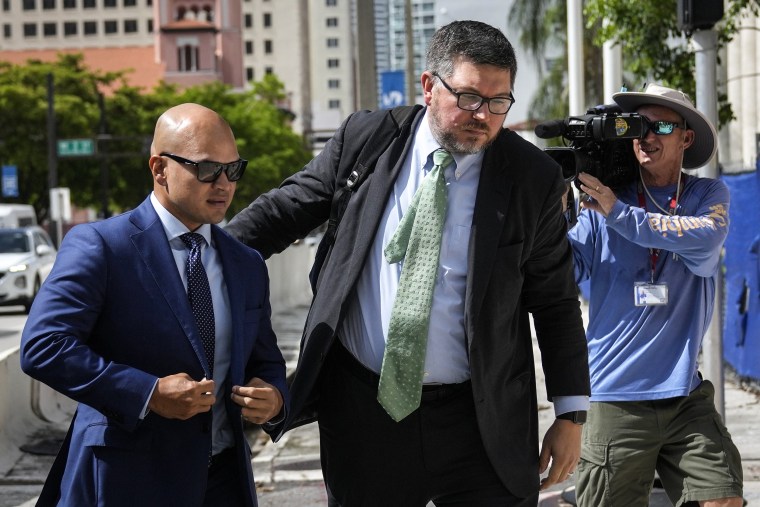While Donald Trump was indicted in his second federal case this week, for alleged 2020 election interference in Washington, D.C., the plot thickened in his first federal case, related to classified documents and alleged obstruction in Florida.
That became evident in a filing Wednesday from special counsel Jack Smith’s team, which raised the possibility of conflicts for Trump co-defendant Walt Nauta’s lawyer, Stanley Woodward.
“A potential conflict exists because Mr. Woodward previously represented one witness and currently represents two other witnesses who the Government may call to testify at the trial of his client Nauta,” prosecutors wrote.
They want a “Garcia” hearing, named for the 1975 case of United States v. Garcia, at which Judge Aileen Cannon would inquire into potential conflicts. Among them is that Woodward represented “Trump Employee 4” — identified in reporting as Yuscil Taveras — whom Trump, Nauta and new defendant Carlos De Oliveira are charged in the superseding indictment with asking to delete security footage at Mar-a-Lago to prevent the grand jury from seeing it.
According to Wednesday's motion, when Woodward still represented Taveras, he told the government he was unaware of incriminating testimony Taveras could give against Nauta. The grand jury returned the superseding indictment last week after Taveras retained new counsel.

So, what could be the problem? If that’s not clear enough already, the government spells it out in the motion.
A lawyer’s cross-examination of a former or current client “raises two principal dangers,” prosecutors wrote: 1) it can result in the lawyer improperly using or disclosing client confidences, and 2) the lawyer might “pull his punches” while cross-examining witnesses, whether to protect client confidences or to advance the lawyer’s personal interest.
To be sure, while the government’s filing suggests a potentially serious conflict, defendants can still waive them. Indeed, it would be a bit surprising if Nauta doesn’t waive any conflict, given his seemingly servile relationship to Trump. He still works for the former president, whose political action committee paid Woodward (which is legal, if eyebrow-raising).
But it’s not entirely up to Nauta. Cannon has to accept any waiver. So this is yet another instance when the trial judge’s vast, though not unlimited, discretion comes into play.
The government’s motion, with the defense's response due by Aug. 16, thus highlights the growing complexity of the multi-defendant case and provides the latest test for the relatively new judge.

